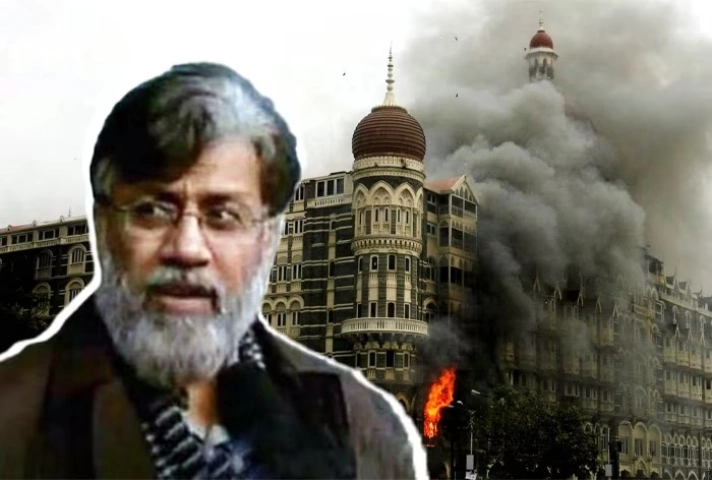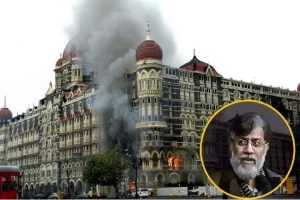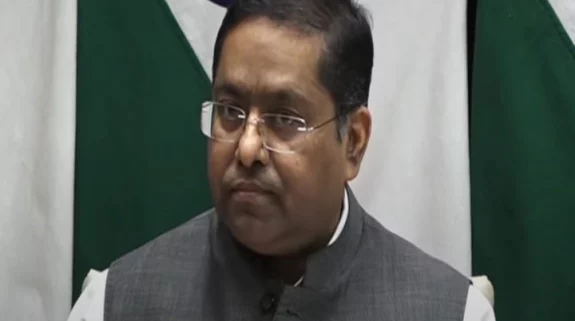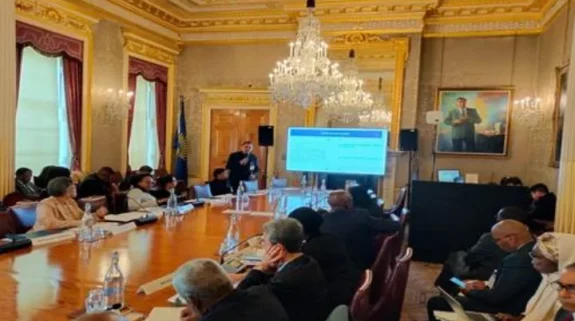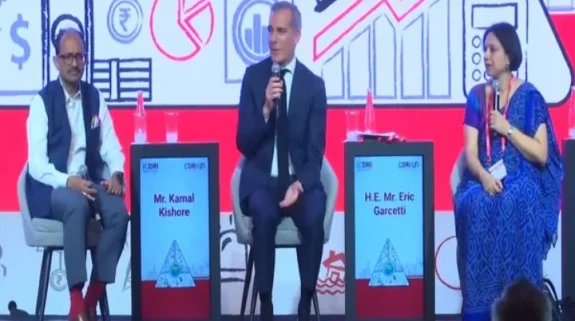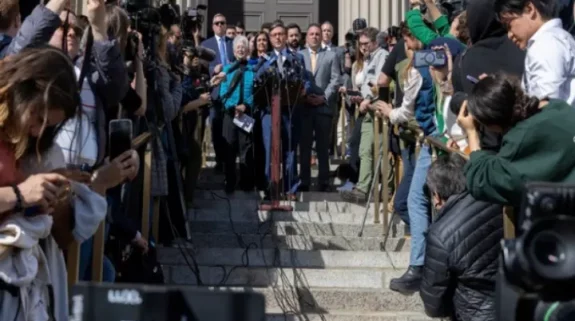On May 16, 2023 Judge Jacqueline Choelijian of the United States Central California District Court, Los Angeles approved the extradition to India, of Tahawwur Rana, notorious associate of David Coleman Headley, who has been charged in India for helping the latter, in collusion with Pakistani Inter-Services Intelligence (ISI) officials, to plot the 26/11 2008 Mumbai attacks.
The charges against Rana include criminal conspiracy, committing terrorist acts and murder, all extraditable offences under the US- India extradition treaty of June, 1997. This judgment can be appealed against and Rana’s lawyers will certainly exhaust every such opportunity, The final decision in this regard will rest with US Secretary of State, Antony Blinken.
It may be recalled that in June 2011 a jury in USA convicted Rana of supporting terrorism by providing material support to Lashkar-e-Taiba and planning an aborted plot to bomb a Danish newspaper, Jyllands-Posten. Headley, by then already in custody of US security officials, testified against Rana under their pressure. However, Rana claimed he was `manipulated and misled’ by Headley and did not know much about details of the Lashkar-e-Taiba (LeT) ’s Mumbai attack plan. He was acquitted of the charge of involvement in the 2008 Mumbai attacks. In January, 2013, he was sentenced to 14 years in prison. Though briefly released in 2020-21 due to a covid affliction, he was taken under arrest again by US officials.
While India’s National Investigation Agency (NIA) was given access to interrogate Headley in 2012, they could not question Rana.
Born and raised in Chichawatni, district Sahiwal, Punjab, Pakistan, 62-year-old Tahawwur Hussain Rana studied in the Cadet College Hasan Abdal, a military residential institution in Pakistan, where he met and befriended David Headley, then still known as Daood Gilani. They became and remain close friends.
A physician by profession, Rana served as a captain in the Pakistan Army Medical Corps. His wife too is a physician. In 1997, when posted to the Siachen front on the Pakistani side, Rana quit and immigrated to Canada, obtaining Canadian citizenship in June 2001. Later, he migrated to Chicago, USA setting up an immigration service agency, First World Immigration Services, with offices in Chicago, New York and Toronto. He also owns a home in Ottawa where his father and brother stay.
During his interrogation, Headley confessed to NIA officials that Rana was influenced by his thoughts and actions, shared genuine feelings to fight for the cause of Islam and had readily agreed to help, when Headley met him during a trip to USA from Pakistan in July 2006. Headley apparently disclosed to Rana the entire plan of the ISI and LeT to attack identified targets in Mumbai. It was during this visit that Rana and an advocate friend, Raymond Sanders helped Headley to change his name in US records from Daood Gilani to David Coleman Headley.
Rana’s first wife, Shazia and their four children shifted to Chicago in September, 2008 and were helped to settle down there by Rana. While in Mumbai, Headley e-mailed his will to Rana. Rana also committed to associate Headley in setting up the so-called Immigrant Law Centre (ILC) office in Tardeo, Mumbai, which Headley started thereafter, recruiting a Parsi secretary, Mrs. Mahrukh Bharucha to run it. Headley received money directly from Rana twice while in Mumbai and collected the same from the Canadian consulate. Bashir, a Mumbai resident and friend of Rana also helped Headley during his frequent sojourns there.
By this time, Headley’s handlers in Pakistan were in direct contact with Tahawwur Rana. Both Sajid Mir and the ISI’s mysterious `Maj Iqbal’ (codenamed `Bala’) were fine-tuning with Rana, Headley’s survey operations in Mumbai and other cities in India. Allowed to visit Dubai ostensibly on a paid holiday, in November, 2008, just a few days before 26/11, Rana met Abdur Rehman Pasha, erstwhile 6 Baloch Regiment, Pakistan Army, now a committed Islamic terrorist in the ISI’s payroll. Both Major Iqbal and Pasha were in the thick of exploring mechanisms to attack the Jyllands Posten cartoonists in Denmark, Kurt Westergaard and Fleming Rose, which they discussed with Rana. It was this complicity which drew Rana into the crosshairs of US security officialdom, attracting judicial censure too, not his awareness of the Mumbai plot.
-Under pressure from #FATF #Pakistan finally arrests mastermind of 2008 #Mumbai terrorist attacks, Lashkar-e-Taiba’s (LeT) Sajid Mir#India #Indian #Terrorism #Terrorists pic.twitter.com/a260sjA3RQ
— Insightful Geopolitics (@InsightGL) June 26, 2022
When Headley was able to meet Ilyas Kashmiri in Pakistan, he went back and told Rana about his discussions. When Headley met Rana in USA, July 2009, after the Mumbai attacks, he briefed the latter about his latest instructions, from Major Iqbal and Sajid Mir, in connection with his visit to Sweden and Denmark. It was during this trip, which he concealed from his US handlers at that stage, that Headley came to adverse notice of the Swedes and then, the MI-6, who flagged the Denmark `Mickey Mouse’ plot to the Americans. Sajid Mir later disapproved of this `un-islamic’ code name for the plot and renamed it, `the Northern Project’.
Headley once admitted before his NIA interrogators that Sajid Mir had played the tape of LeT’s control room conversations in Karachi during the Mumbai attacks to Tahawwur Rana, much after the attacks, sometime in July, 2009. Rana had likened Sajid Mir’s voice to that of Khalid bin Waleed, the 7th century Arab militant commander, who fought but later became a disciple of Prophet Muhammed (PBUH).
If and when Tahawwur Rana’s extradition to India finally comes through, these and several other loose ends from Headley’s interrogation could be further pursued by NIA investigators. Important leads from there could renew pressure on Pakistan, which was enabled to emerge from the Financial Action Task Force (FATF)’s grey list last year, after the ISI reluctantly admitted Sajid Mir was in their custody, which fact they had brazenly denied earlier.
When Rana was being tried in 2011, his pugnacious lawyer, Charlie Swift, a former US Navy officer who has specialized in defending Guantanamo Bay accused, had claimed that Rana was `only a minnow’ being needlessly pursued by Indian investigators. If the US change of heart persists and he is finally extradited, Tahawwur Rana’s trial in India would certainly bury this lie to good effect and reveal the arch truth that he was very much in the thick of all the plotting that went on in Pakistan of this dastardly conspiracy, to which he was fully privy all the time.
Also Read: US court approves extradition of 26/11 attack accused Tahawwur Rana to India
(Rana Banerji was Special Secretary (Retd.) in the Cabinet Secretariat. Views expressed are personal and exclusive to India Narrative)






